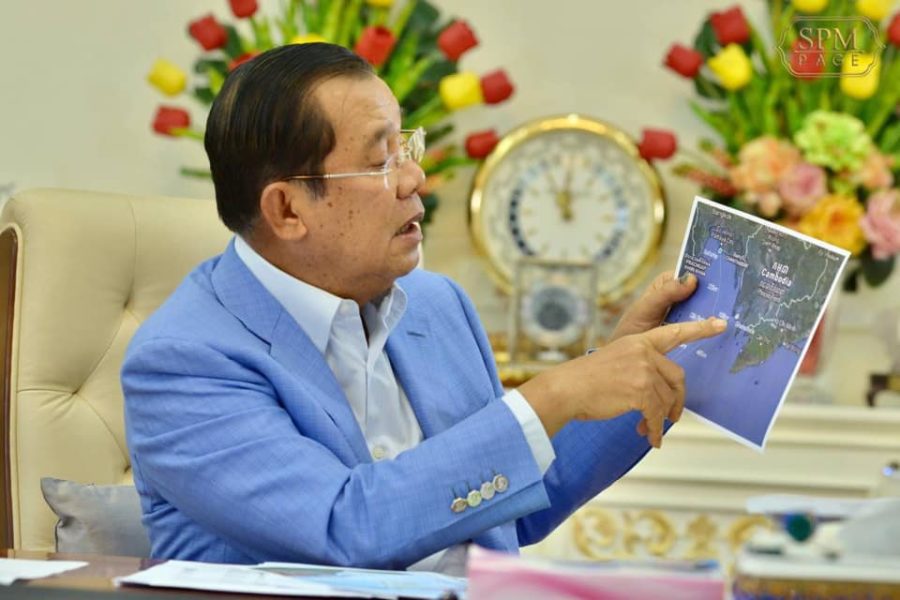KrisEnergy announced that it has filed a “winding up” petition just six months after producing Cambodia’s first drops of oil, citing low production in Cambodia’s beleaguered Apsara block and the company’s compounding debt.
The Singapore-listed company announced to its shareholders on Friday that it had submitted the petition to the Grand Court of the Cayman Islands — where the company is registered — as “the Company is unable to pay its debts based on actual and/or contingent liabilities and will proceed to liquidation.”
The announcement said that among the reasons for liquidating the company was that the company had not been able to restructure as required by Singapore-based lender DBS, and the company had found Cambodia’s Apsara block less productive than it had expected. KrisEnergy added that its liabilities exceeded its assets, and there was a lack of funds in the near-term.
The hearing date for the winding-up petition is yet to be determined, it said.
KrisEnergy’s vice president for investor relations Tanya Pang said in an email that operations of KrisEnergy’s assets, including the Apsara block production, were nevertheless ongoing.
“The Winding Up Petition as announced on 4 June 2021 relates only to KrisEnergy Ltd., the parent company listed on the Singapore Exchange and not the subsidiary companies holding the Group’s assets. Operations of KrisEnergy’s assets are continuing,” she said.
Cheap Sour, the Energy Ministry’s petroleum department director, said he was aware of the company’s request to liquidate, but said it was “a bit early” to answer questions and that he was still collecting information.
KrisEnergy turned its focus toward developing the Apsara block, also called Block A, in 2019 and 2020, and built its plans to restructure the company around the expected returns from producing Cambodia’s first operational oil development.
KrisEnergy extracted Cambodia’s first drops of oil in late December, and despite delays, Prime Minister Hun Sen exalted the development as a source of new income for Cambodia while the country was weathering Covid-19 and its economic impacts.
Analyses of the block from 2015 had projected that the oil field would yield far less revenue than the Cambodian government had claimed, both then and in recent years.
KrisEnergy had already pared down its development plans for the Apsara block, calling its productions off the Sihanoukville coast a “mini phase.”
But by March 31, KrisEnergy announced that production at its five wells on the block revealed much smaller oil reserves than it had expected — reaching an average gross production rate of 2,883 barrels of oil per day early this year, less than half the peak production rate of 7,500 barrels a day it previously projected.
“Apsara Mini Phase 1A was expected to provide the cashflow necessary to fund the ongoing operations of the Group. Given the significantly lower estimated ultimate recovery and cashflow from the Apsara Mini Phase 1A development, material uncertainty exists over the Group’s ability to complete the Restructuring Exercise and to continue as a going concern,” the company said on March 31.
The assessment was supported by an April audit from petroleum engineering consultant Netherland Sewell and Associates, whose review showed that production from the fives wells “is likely to be a small fraction of the pre-development estimates” and that the company had “limited potential” to improve oil recovery rates. The audit also noted that Brent crude oil prices were at a record low of an average $43 per barrel last year, though they recovered in early 2021, reaching $71.17 per barrel as of Monday.
Chan Ramy, executive director of the resource and transparency NGO Youth Resource Development Program, said she had not heard of the winding up petition but she was not surprised to hear the company was closing, saying she had heard it was hit hard by Covid-19 as well.
“I think it is a big loss for the government as they were hoping to get a lot of money from this sector for country development; to gain popularity from the public under [the premier]’s leadership for the upcoming elections,” she said.
However, she noted that the general public might not understand how they stood to gain from oil development.
“General Cambodians are not so much aware and interested in this sector because they don’t know that this underground resource belongs to all Cambodians including this generation and the future generation,” she said. “If it is managed well, it is a prosperous [resource] for the country and the people.”













